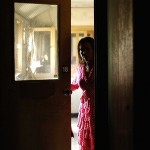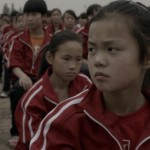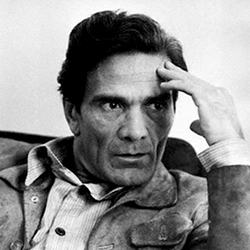
MoMA Documentary Fortnight 2014 Review: Mothers (2013) - NP Approved
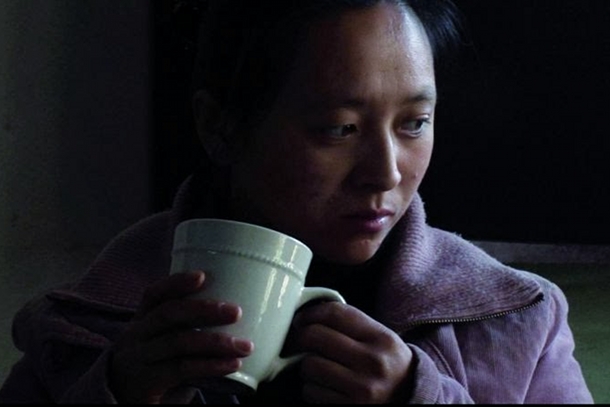
Director: Hui Jing Xu
Country: China
Genre: Documentary
Editor’s Notes: The following review is part of our coverage for Museum of Modern Art‘s Documentary Fortnight 2014 which runs from February 14th to February 28th. For more information visit www.moma.org and follow MoMA on Twitter at @MuseumModernArt.
Filmmaker Xu Huijing sets his documentary Mothers in Hangdong County, located in the northern Chinese province of Shanxi. More specifically, he focuses on his native village of Ma. The village has a population of 2226, 483 of whom are women aged between 15 and 49. Of this number 345 have been sterilised, according to state birth control policies, while 121 use birth control rings. The film was shot from 2010 to 2011. This glut of numbers appears at the beginning of the film and may seem superfluous. But such figures are ultimately central to the film’s subject: the country’s one-child policy (which began in 1980) and its ramifications in this particular village. Furthermore, such figures relate directly to the series of situations that subsequently unfold. In a word, Mothers is about the state and citizen as one and the regulation of the (female) body through the policy, which involves compiling statistics and fulfilling quotas. Xu is close at hand with his camera among the villagers and the local officials whose duty is to enforce the policy. He creates a most astonishing film by capturing encounters between these two parties and individual scenes that range from the banal and comical, to the absurd and tragic.
In a word, Mothers is about the state and citizen as one and the regulation of the (female) body through the policy, which involves compiling statistics and fulfilling quotas.
Past and present members of Ma village’s birth control center, Women’s Care, including its current director Zhang Qingmei, feature prominently in the film. Also principal social actors are members of the village’s Birth Control and Sterilisation Mobilisation group, first introduced via one of their meetings. As they speak of quota fulfillments regarding sterilisation, they unwittingly and matter-of-factly lay bare the bureaucratisation of hygiene, sex, marriage, and child-bearing. For their part, two former directors of Women’s Care (Li Dong-shan and Da Da) unintentionally make even more explicit the bureaucratisation of bodies as a result of the one-child policy when they converse about the rampant abortions that took place in 1982 and the ongoing pressure on villages from higher-ups to fulfill sterilisation quotas. The eventual illogicality of the policy is that with populations dwindling in villages (inhabitants leave or choose not to get married) and nearly every remaining woman sterilised, quotas become increasingly unrealistic and unreasonable. The illogicality is further highlighted by the pressure on the group to fulfill quotas; otherwise they are fired for poor performances.
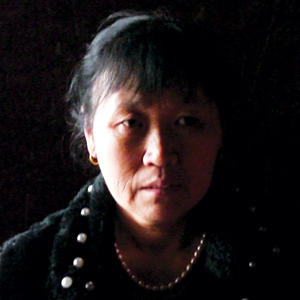 The bulk of the film accompanies Zhang and the Sterilisation Mobilisation group as they go door-to-door to get sterilisation appointments. The lure of sterilisation, as they pitch it, is that once a woman is sterilised, her baby will be registered (which is a guarantee of public schooling, among other things). However, members of the group reveal that they have competition from local corrupt police, who get families’ children registered for a fee without getting the women sterilised. As the group continues to drum up appointments, their activity somewhat resembles a gang collecting protection money from business owners, with some of the latter disappearing to avoid paying the fee.
The bulk of the film accompanies Zhang and the Sterilisation Mobilisation group as they go door-to-door to get sterilisation appointments. The lure of sterilisation, as they pitch it, is that once a woman is sterilised, her baby will be registered (which is a guarantee of public schooling, among other things). However, members of the group reveal that they have competition from local corrupt police, who get families’ children registered for a fee without getting the women sterilised. As the group continues to drum up appointments, their activity somewhat resembles a gang collecting protection money from business owners, with some of the latter disappearing to avoid paying the fee.
The latter analogy is not unwarranted, for the Sterilisation Mobilisation group comes up against Rong Rong, one of the few women in the village who has yet to undergo sterilisation surgery. The push-pull relationship between Rong Rong and the group highlights the strangeness and absurdity of the entire situation, beginning with a scene where one of the group members practically barters with her to get her sterilised. With Xu steadfast in his observation of all that is happening, gradually the realisation sinks in that women like Rong Rong who do whatever they can to avoid being sterilised are stigmatised and pursued until caught; they cease to be a person but become a number, a statistic, to tally and deliver to the officials. Also revealing and even humourous is the same group member’s conversation with Rong Rong’s grandmother about sterilisation as steps towards progress, a logic that the grandmother completely resists. Through Rong Rong’s prolonged evasion of the group and surgery, she throws the one-child policy (and by extension national policy and the state) into striking disarray. Under pressure from above, however, the group takes increasingly persuasive measures to get Rong Rong sterilised, especially when she disappears: they do not allow her children to attend school; they visit her husband at his workplace (though he shrugs them off and supports his wife’s actions).
With Xu steadfast in his observation of all that is happening, gradually the realisation sinks in that women like Rong Rong who do whatever they can to avoid being sterilised are stigmatised and pursued until caught…
The extensive energy required to have women undergo sterilisation surgery prompts the same prominent group member to say, ‘Birth control is not an easy task.’ When asked about side effects of the surgery, Da Da replies, ‘We have national policies. How can sterilisation cause problems?’ even when women complain about pain. Some just want to keep their jobs while others are buoyed by their belief in the one-child policy as national duty. Xu depicts the implementation of this task with incredible detachment and sensitivity simultaneously. From women who are on the side of implementing sterilisation policies to women who are on the side of being subordinated to such policies, he does not demonise anyone. As a result, he registers all the more the complexity and controversy of the policy.
As a conclusion, the possibility of a two-child policy may begin in 2015, Xu’s voiceover shares. Nearly imperceptibly, Xu had inserted himself early into the film in a scene on a moving train while his voiceover expresses the stigma of the second child in Chinese families. He is that second child for his mother, to whom he dedicates the film along with all of the others who have suffered, like Rong Rong.
Related Posts
![]()
Rowena Santos Aquino
![]()
Latest posts by Rowena Santos Aquino (see all)





